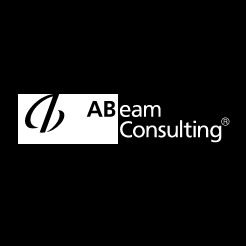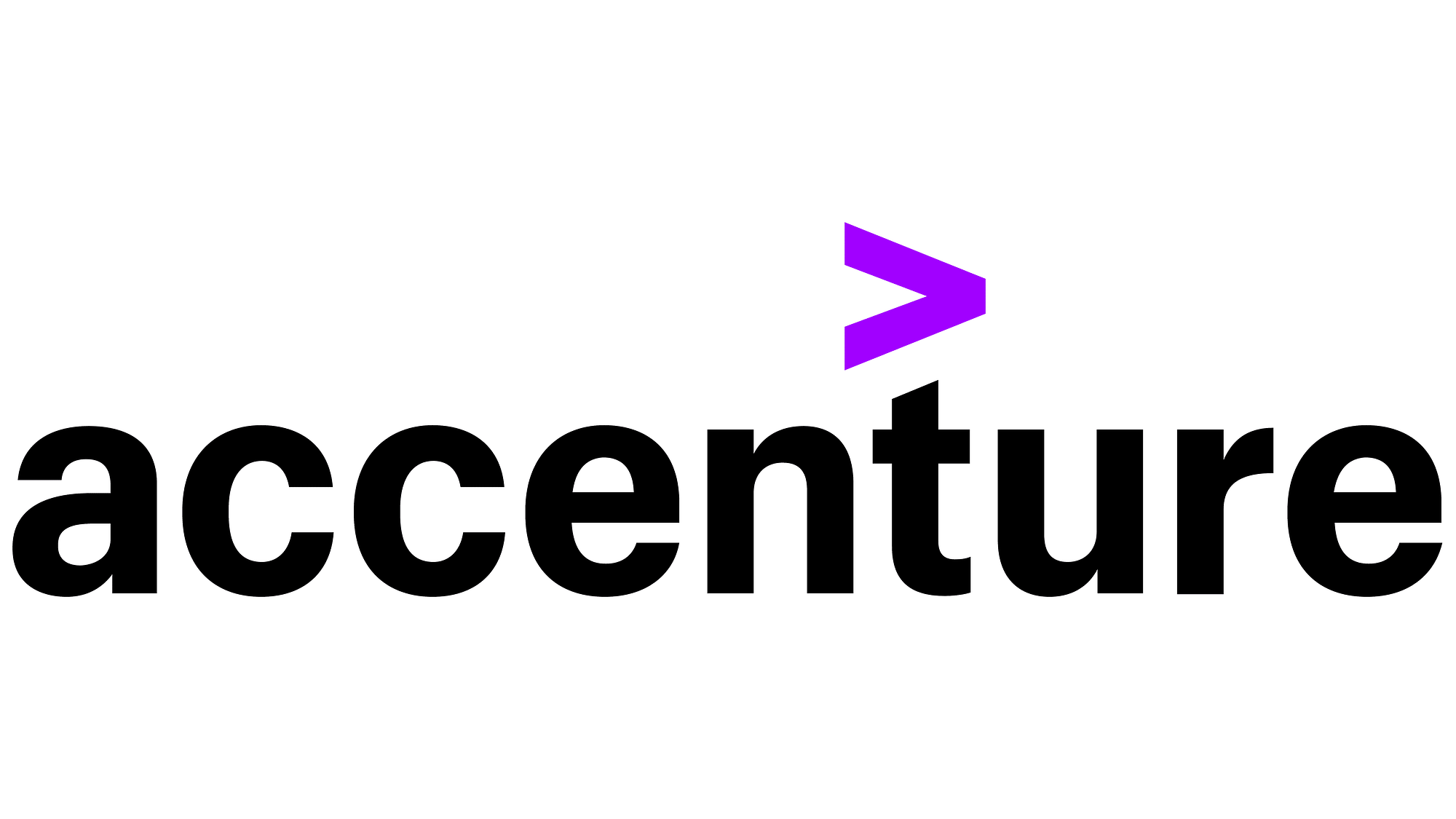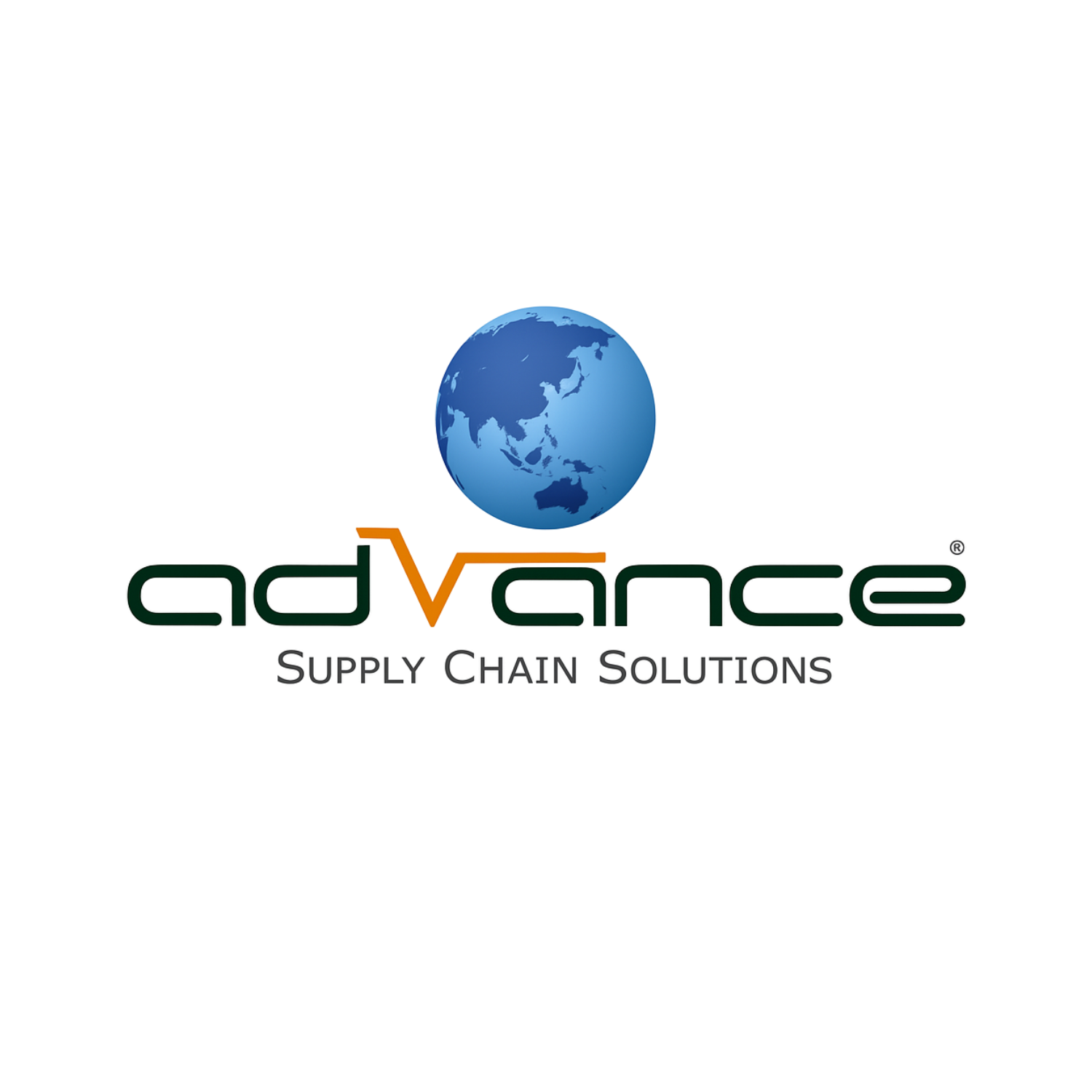Top 10 Global Supply Chain Management Companies Based in Singapore for Improved Market Reach and Expansion
An efficient supply chain has a positive impact on any business, from start-ups to major enterprises. With expert advice and the right supply chain strategy framework, companies of all sizes can optimise their operations and see higher profits.
Investing in the right consultation services helps protect your company against current and future disruptions, minimise financial losses, increase customer satisfaction, and accelerate growth with sustainable practices. With this knowledge, you will be better prepared to bring success to your operation through smart supply chain management decisions.
If you're seeking dependable supply chain consulting services that provide extensive support and effective problem-solving, explore our selection of trusted supply chain consulting firms and consultants in Singapore.
How a Supply Chain Managed Services Can Assist Your Business Save Cost and Mitigate Risk in Material Procurement
Supply chain consultants play a crucial role in enhancing the efficiency and effectiveness of businesses in Singapore by optimizing their supply chain processes. In this dynamic and competitive market, these consultants bring valuable expertise to help organizations streamline their operations, reduce costs, and improve overall supply chain performance.
One key aspect of their role is the identification of inefficiencies within the supply chain. By conducting thorough assessments, supply chain consultants can pinpoint areas for improvement, such as inventory management, transportation logistics, and procurement processes. This results in enhanced resource utilization and cost savings for businesses.
Additionally, supply chain consultants contribute to the integration of advanced technologies and digital solutions. They help businesses leverage cutting-edge tools like data analytics, artificial intelligence, and blockchain to gain real-time insights, optimize decision-making, and foster transparency across the supply chain.
In the context of Singapore, a global trade and logistics hub, the impact of supply chain consultants is particularly significant. They assist businesses in adapting to the rapidly evolving market dynamics, compliance requirements, and technological advancements, ensuring that companies remain agile and resilient.
Ultimately, the role of supply chain consultants in Singapore extends beyond cost reduction; it encompasses strategic planning, risk management, and innovation, enabling businesses to thrive in the ever-changing landscape of the global marketplace.
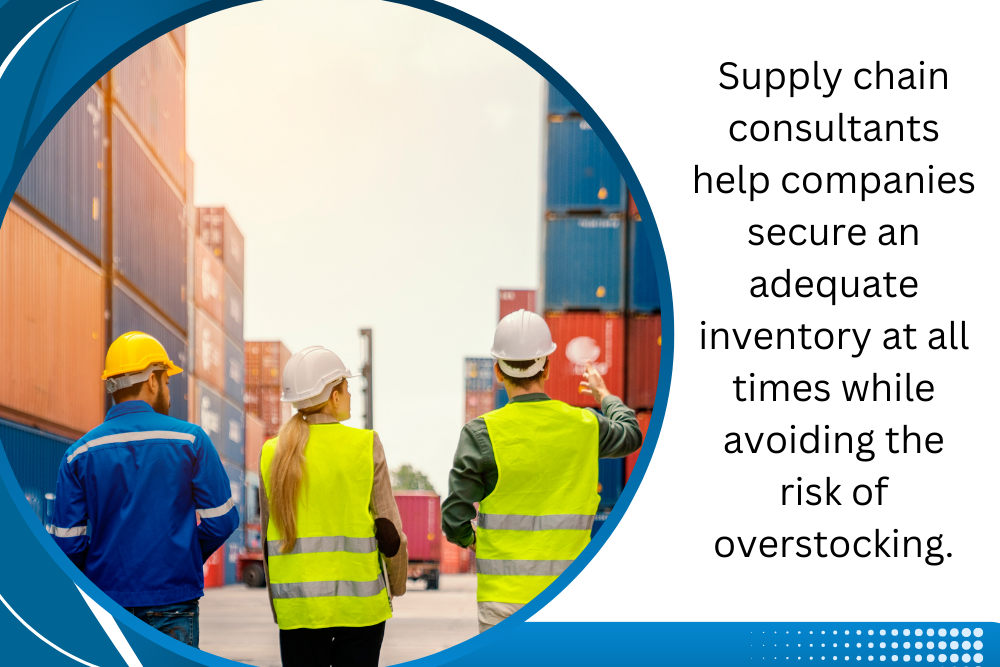
Common Supply Chain Pain Points
As organisations strive to achieve operational excellence and cost savings in their supply chain, they often encounter common pain points derailing their efforts. Here are some common supply chain challenges organisations face.
Inventory management issues
One of the significant challenges in supply chain management is managing inventory. Organisations must balance having enough inventory to meet demand but not so much that it ties up cash and creates storage issues. Unforeseen changes in customer demand or supplier delays complicate this delicate balancing act. To manage inventory, organisations must have accurate systems for tracking and forecasting demand. These systems are necessary to avoid overstocking or excess inventory. Poor inventory management also increases costs and reduces profit margins due to the need for expedited shipping.
Demand forecasting challenges
Demand forecasting stands out as a significant pain point in the supply chain process, challenging procurement leaders to accurately predict consumer needs. Fluctuations in market trends, consumer behaviour, and other external factors make forecasting complex. Inaccurate predictions can lead to overstocking or stockouts, impacting operational costs and customer satisfaction. Procurement leaders must leverage advanced analytics, machine learning, historical data, and other tools to refine forecasting models. Addressing this challenge ensures a seamless supply chain that minimizes disruptions and optimizes inventory levels, ultimately contributing to improved efficiency and profitability for businesses.
Supplier relationship management
The success of a supply chain is dependent on the relationships with suppliers. However, maintaining supplier relationships is a challenge for organisations. Some common pain points in this area include late deliveries, quality issues, and poor communication.
Late deliveries disrupt the entire supply chain, leading to stockouts and delays in production. Quality issues result in increased costs and damage to the organisation's reputation. Poor communication leads to misunderstandings and missed opportunities for cost savings. Organisations must have clear communication channels to manage supplier relationships and establish mutually beneficial partnerships with their suppliers. This includes regular performance evaluations and a shared understanding of expectations.
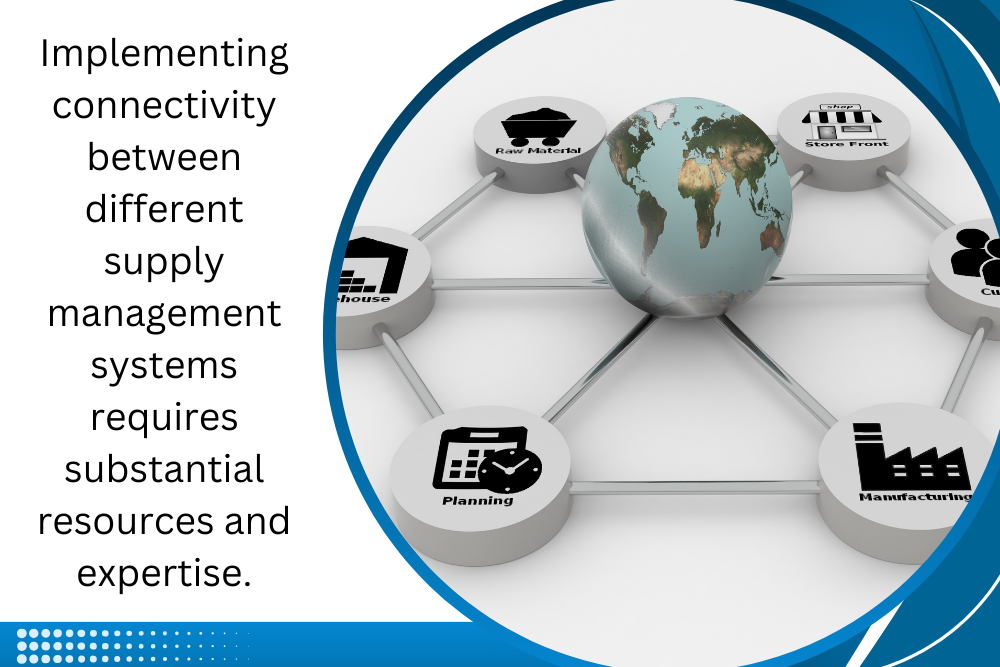
Logistics and transportation issues
Logistics and transportation play a critical role in supply chain management. Capacity constraints, rising fuel costs, and delays all create organisational challenges. Capacity constraints lead to difficulty finding available carriers for shipments. Rising fuel costs also impact transportation expenses and increase the overall cost of goods sold. Delays in transportation result in missed delivery deadlines, negatively impacting customer satisfaction. Organisations must have good transportation processes in place to mitigate these challenges. This includes using technology to optimise routes, reduce shipping costs, and establish relationships with reliable carriers.
Technology integration challenges
Technology integration poses a significant challenge in supply chain management, acting as a persistent pain point for many organizations. The complex nature of integrating diverse technologies, such as inventory management systems, IoT devices, and data analytics platforms, often leads to compatibility issues and inefficiencies. Implementing seamless connectivity between these disparate systems requires substantial time, resources, and expertise. The struggle to harmonize technology components hinders real-time visibility, decision-making, and overall operational agility, impeding the full potential of supply chain optimization.
Quality control and compliance
Organisations must comply with several regulations and standards to ensure the quality and safety of their products. However, meeting these requirements is challenging for companies operating in multiple countries or sourcing materials from different regions. To manage quality control and compliance, organisations must have systems to monitor and ensure adherence to regulations and standards throughout the supply chain. This includes implementing quality management software or conducting regular audits of suppliers.
Communication and collaboration barriers
Effective communication and collaboration are important for a smooth supply chain. However, language barriers, cultural differences, and geographical distance create challenges in communication and hinder collaboration. Organisations must establish clear communication channels and address any potential barriers to ensure effective communication between all parties involved in the supply chain. This involves providing translation services or implementing project management software to facilitate collaboration across different teams and locations.
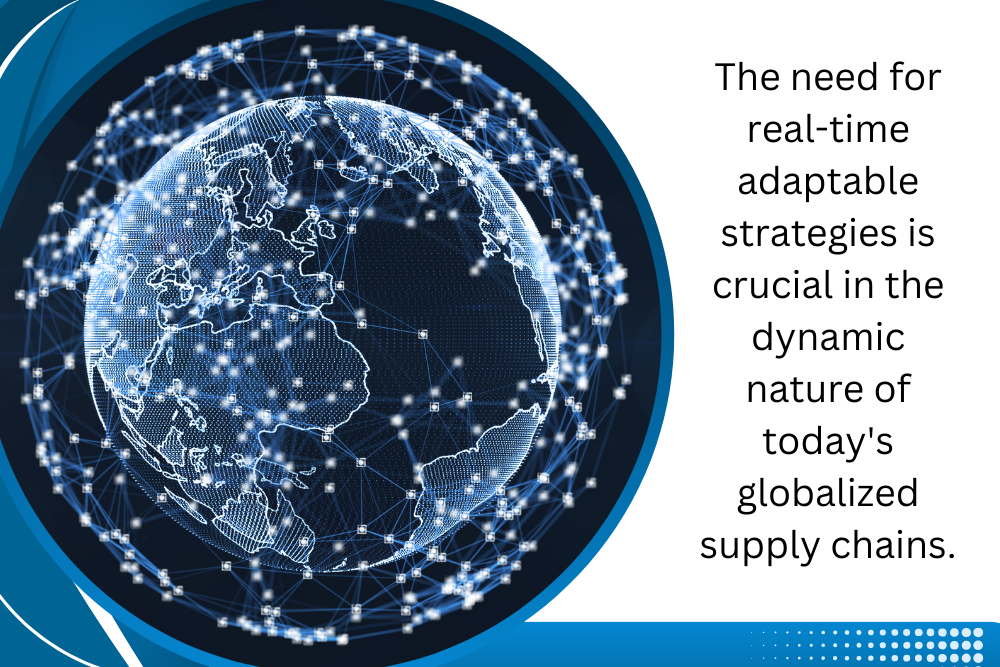
Impact of Globalization on Supply Chains
Globalisation has impacted supply chains, transforming them into complex, interconnected networks. The integration of global markets has led to increased competition, forcing companies to re-evaluate their supply chain strategies.
One of the major effects of globalisation on supply chains is the need for strategic shifts towards a more localised approach. To remain competitive, companies must adapt their supply chains to meet the demands of specific local markets. This includes setting up regional distribution centres, sourcing materials locally, and tailoring products to meet cultural preferences.
However, this localisation effort has its challenges. The interconnectedness of supply chains means that disruptions in one part of the network can have a ripple effect throughout the system. Companies must carefully balance the benefits of localisation with the potential risks and complexities involved.
In addition to strategic shifts, globalisation has brought about technological disruptions in supply chains. The advancement of technology has allowed for increased automation in areas such as inventory management, transportation, and communication within the supply chain. This has enabled companies to streamline logistics operations and improve overall performance.
However, these technological disruptions also bring about the need for continuous adaptation and investment in new technologies. As supply chains become more reliant on technology, companies must ensure they have the resources and expertise to manage these systems.
The Benefits of Supply Chain Consulting
Engaging a supply chain consultant invigorates your business. Gaining fresh insights from an expert is invaluable concerning a critical aspect, such as your supply chain. Here are the benefits of supply chain consulting:
Innovation and technology integration
With the rise of digitalisation and automation, supply chain consulting has become more crucial. By leveraging advanced technologies such as artificial intelligence, machine learning, and data analytics, supply chain consultants can help organisations automate routine tasks, improve decision-making processes, and gain valuable insights into their supply chain operations.
Improved efficiency and cost reduction
Efficiency lies at the core of a thriving supply chain. You can minimise waste and shorten lead times by leveraging supply chain consulting services. This allows for faster order fulfilment and a stronger competitive edge. One of the significant benefits of consulting is cost reduction. A supply chain consulting firm identifies inefficiencies, proposes cost-effective solutions, and enhances workflow. This translates to more efficient resource utilisation and a healthier financial performance.
Enhanced visibility and transparency
Enhanced visibility empowers companies to track and monitor their supply chains, guaranteeing the timely delivery of goods and services. This facilitates improved inventory planning, shorter lead times, and customer service.
Risk mitigation strategies
Due to supply chain disruptions caused by unforeseen market changes or natural disasters, businesses face critical setbacks. However, consulting firms provide valuable assistance in devising strategies to mitigate these risks. They offer contingency plans, recommend diversification, and conduct comprehensive risk assessments to ensure your supply chain resilience.
Customised solutions aligned with business objectives
Supply chain consultants work closely with businesses to understand their specific needs and develop tailored strategies to address them. This level of customisation ensures that the solutions provided by supply chain consultants are effective and relevant for the particular business, leading to improved efficiency.

The Supply Chain Consulting Process
Supply chain consulting is a complex process that involves evaluating and improving the efficiency of an organisation's supply chain. The main goal of supply chain consulting is to identify opportunities for improvement and implement logistics strategy to drive growth and profitability.
Initial assessment
The initial assessment begins with thoroughly analysing the organisation's current state. This includes an in-depth review of existing processes, systems, and infrastructure. The consultant will collect data on key performance indicators such as lead times and product quality to understand the current performance levels. Based on the current state analysis, the consultant will identify pain points and opportunities for improvement within the supply chain. These could include bottlenecks in processes, lack of visibility in logistics, or communication gaps between suppliers.
Strategy development
Once the initial assessment is complete, strategy development is the next step in the supply chain consulting process. Tailoring solutions is a critical aspect of supply chain consulting. It ensures that the consultant's strategies and recommendations align with the organisation's goals. When developing solutions, this involves considering budget constraints, resource availability, and risk tolerance.
Technology also plays a vital role in supply chain planning. As such, technology integration planning is important to the logistics consulting process. This involves evaluating existing systems and identifying opportunities for technology to improve visibility and enhance decision-making.
Implementation
The implementation phase is where the recommendations and strategies from the initial assessment and strategy development are put into action. This involves change management, which is crucial for successful implementation in supply chain consulting. Change management entails managing the transition from current processes to new ones, ensuring that employees are trained and equipped to handle changes.
This also involves communicating with all stakeholders, including suppliers and customers, to ensure smooth implementation and minimise potential disruptions. The implementation phase is also where continuous improvement comes into play. Supply chain consulting requires regular evaluation and adjustment. This allows organisations to adapt continually to changing market trends, customer demands, and technological advancements.

Key Considerations in Choosing a Supply Chain Consultant
Choosing the right consultant is crucial for success when managing your supply chain. A supply chain consultant brings valuable industry expertise, track record, references, and technological proficiency to help you optimise your operations and increase efficiency.
Industry expertise
A consultant with experience in your specific industry will better understand the challenges and opportunities you face. They will also be familiar with your industry's latest trends, best practices, and regulations. Furthermore, an experienced supply chain consultant brings innovative ideas to help improve your operations. Their knowledge of the market could also aid in identifying potential risks and opportunities, allowing you to make informed decisions for your supply chain.
Track record and references
Requesting relevant case studies and client references gives you a glimpse into their past projects and success stories. A reputable consultant will have a proven track record of delivering tangible client results. Furthermore, speaking to their former clients provides valuable insights into the consultant's approach, communication style, and overall performance.
Technological proficiency
Achieving end-to-end visibility, enabled by advanced technologies like IoT, AI, and blockchain, ensures real-time monitoring and analysis of the entire supply chain. This proficiency facilitates informed decision-making, enhances operational efficiency, and ultimately optimizes the supply chain process. Companies in Singapore and beyond prioritize technological integration to remain competitive, agile, and responsive in the dynamic landscape of global commerce.
Customisation and flexibility
Every organisation has unique supply chain requirements; a one-size-fits-all approach could only suit some. Therefore, choosing a consultant who can provide customisation and flexibility in their services is important. A good supply chain consultant will take the time to understand your specific needs and challenges before offering solutions. They should also be willing to adapt to your organisation's changing needs and be open to incorporating new strategies and methods.
Cost and return on investment (ROI) analysis
Although choosing the best affordable option could be tempting, looking beyond the initial cost is critical. A reputable consultant will conduct a thorough cost-benefit analysis and provide a clear understanding of the ROI for their services. Furthermore, they should be transparent and upfront about their fees and any other additional costs. Considering the long-term benefits and potential cost savings a supply chain consultant brings to your organisation is crucial.
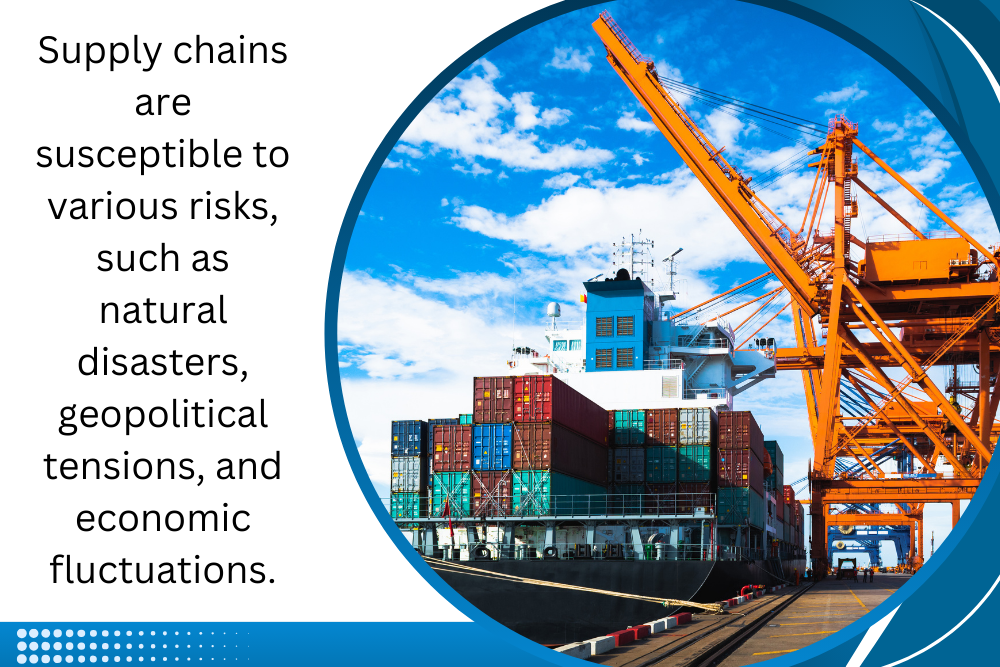
Challenges in Supply Chain Consulting
Supply chain consultants encounter a multitude of daily challenges. These obstacles encompass everything from company resistance to change to data security concerns and global regulatory compliance. Let's delve deeper into these challenges and understand their impact on supply chain consultants' work.
Resistance to change
One of the primary challenges that supply chain consultants face is resistance to change by companies. This resistance comes from different organisational levels and is caused by various factors, such as fear of losing control or job security. Companies could have been operating in a certain way for years and could not see the need to change their processes, even if it means improving efficiency. A supply chain consultant should understand this resistance and find ways to address it through effective communication and showcasing the benefits of change.
Data security concerns
Companies are cautious about sharing sensitive information, especially with external parties such as supply chain consultants. This challenges consultants when they need access to critical data to analyse and improve supply chain processes. Hence, supply chain consultants must have robust security measures in place and adhere to strict data privacy guidelines to earn the trust of their clients.
Global regulatory compliance
As companies expand their operations globally, they must comply with different regulations and laws in each country. This is a challenging task for supply chain consultants as they need to understand these regulations well and ensure their clients' operations align with them. Failure to comply with global regulatory requirements, including fines and reputational damage, leads to consequences.
With globalisation and increasing competition, businesses constantly strive to improve their supply chain efficiency to stay ahead of the curve. If you require reliable supply chain consultancy services that can assist you in enhancing your quality control zone and optimising your business's shipping while reducing costs, look at our selection of trusted supply chain consulting agencies in Singapore.
Latest Becozon Offer
Boost your business with these exclusive deals by our esteemed Becozon partners
Looking for a CRM software?
Get customisable, cloud-based sales and operations CRM software suitable for any industry. Contact us for a demo today!
Contact Us
